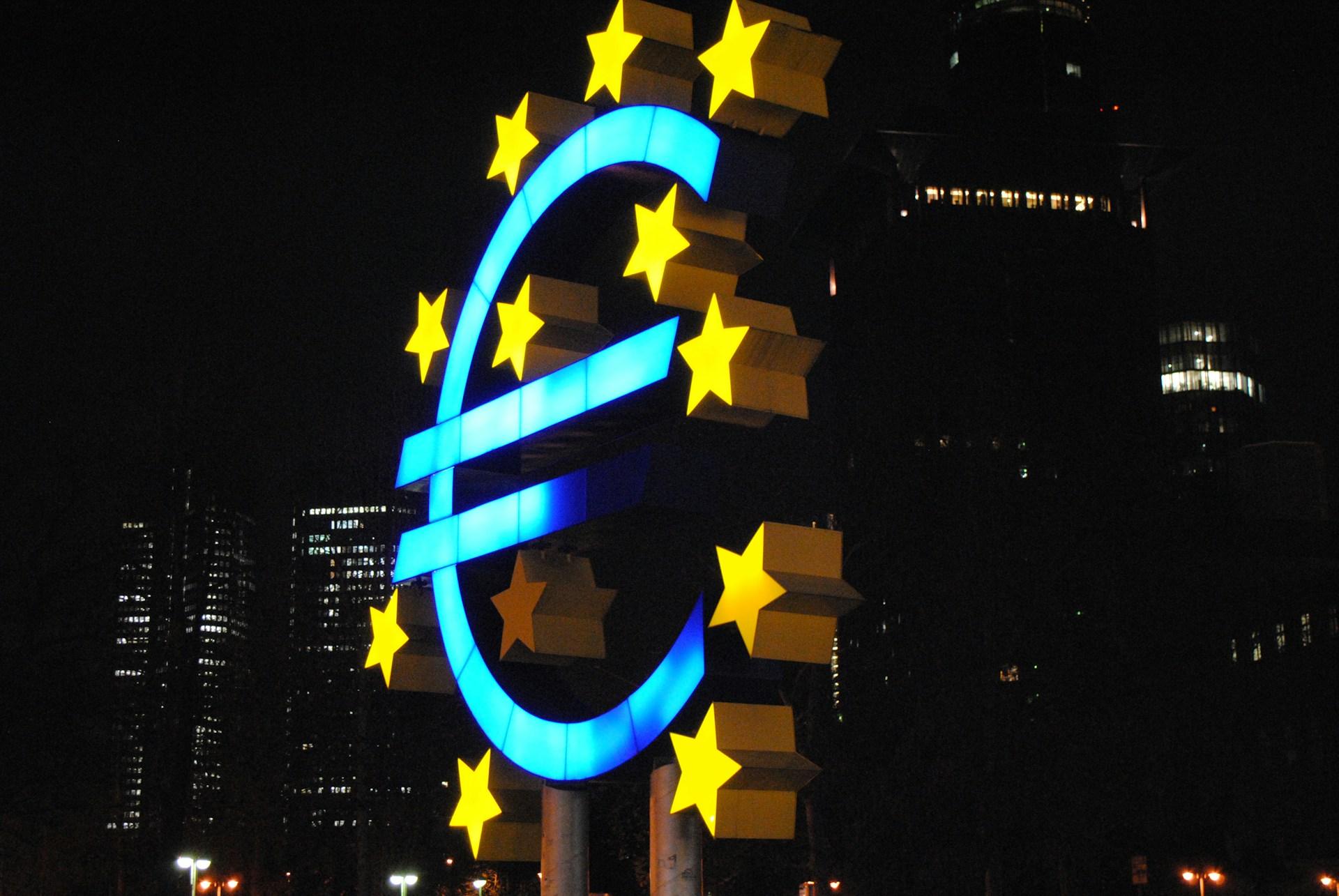The performance of various international equity indices in 2024 has been remarkable with strong double-digit gains across the main US indices which surpassed expectations at the start of the year. While the US equity market generated significant gains during the course of the year, there was a sharp divergence between the performance of the S&P 500 Index in the US and the EURO STOXX 50 despite the strong start to the year for European equities.
In fact, the EURO STOXX 50 had surged by 8.8 per cent in the first four-months of 2024, compared to more modest gains of 5.6 per cent registered by the S&P 500 Index until the end of April. However, while the positive momentum of the S&P 500 Index continued throughout the year as it continued to reach new highs on multiple occasions and now shows a year-to-date gain of around 25 per cent, the performance of the EURO STOXX 50 was rather subdued for the rest of the year and on a year-to-date basis, it is now showing gains of only 5.9 per cent.
Undoubtedly, there are many factors that may have influenced the share price performance of the constituents within each index, but it is evident that the regional exposures of the top constituents within the EURO STOXX 50 is having a notable impact in the context of heightened concerns on trade tariffs between major economies. Furthermore, given that the EURO STOXX 50 is an index with less constituents, the share price movements of each company make a more pronounced impact.
Several companies within the EURO STOXX 50 that performed negatively in recent months have material exposures to China, which impacts their financial performance due to the weakening economic conditions of the region. Furthermore, concerns regarding the impact of trade tariffs are further effecting sentiment towards these companies, thus further suppressing their respective share prices.
The largest constituent of the EURO STOXX 50 is ASML Holding, a supplier of critical equipment used in the production of semiconductors. The share price of ASML fell sharply on multiple occasions in the past five months and stands around 35 per cent below its peak reached at the start of July. However, the share price of ASML is practically unchanged when compared to the start of the year. Despite the fact that the global semiconductor industry is booming and many companies within the sector are benefiting from the increased demand brought by artificial intelligence, ASML recently warned that its projected revenue for 2025 is lower than previously anticipated. The semiconductor industry is well-known for its cyclicality due to periods of high demand and others of low demand. Furthermore, the sector is also subject to various trade sanctions amid geopolitical tensions between the US, China and Russia.
The impact of lower sales from Asia was particularly evident in the results of a number of luxury brand companies within the EURO STOXX 50. For example, Europe’s largest luxury conglomerate LVMH (Louis Vuitton Moët Hennessy) which generates about 30 per cent of its revenues from Asia, registered a decline in revenue from Asia excluding Japan in each of the last three quarters. The share price of LVMH fell by over 30 per cent from this year’s peak reached in March, when at the time it was the largest constituent of the index.
Its rival Kering, which includes luxury brands such as Yves Saint Laurent and Gucci, stands as the worst performer within the index as it fell by more than 40 per cent since the start of the year amid a slowdown in sales. Likewise, the cosmetics specialist L’Oreal highlighted that while the underlying market trends remain robust in Europe, North America and emerging markets, the situation in China has become even more challenging. L’Oreal’s share price fell by over 25 per cent this year.
New competition is also emerging in China within the auto sector, which impacted several European auto manufacturers that traditionally had strong business exposure in China, including the Volkswagen Group, Mercedes Benz and BMW.
Furthermore, car sales within the European Union from these companies and other European peers such as Stellantis and Renault were also subdued, as various automakers from China and Japan are increasing their market share in Europe. In fact, Stellantis ranks among the worst performers within EURO STOXX 50 as it lost around 40 per cent since the start of the year, despite that its share price had gained over 30 per cent up until mid-March 2024.
Infineon Technologies, a semiconductor firm which generates most of its revenues from the automotive sector also performed poorly and lost nearly 20 per cent since the start of the year as it failed to hold the positive performance it had in May and June. The only positive performing car manufacturer within the EURO STOXX 50 so far this year is Ferrari which gained around 30 per cent, but still stands over 10 per cent below the peak of August.
The largest positive performing constituent within the EURO STOXX 50 is SAP, which develops enterprise software used to manage business operations and customer relations. In October, SAP updated the market with its Q3 results that showed continued growth in revenue and profits. The company also raised its full year outlook for operating profit and free cash flow. In recent days, the share price of SAP reached a new all-time high as the equity gained over 55 per cent since the start of the year.
The top performing equity within the EURO STOXX 50 so far this year is Unicredit. The share price of the Italian bank extended the gains registered last year as it surged by over 65 per cent. Earlier this month, Unicredit reported the fifteenth consecutive quarter of profitable growth as the Bank continues to benefit from the change in the eurozone interest rate environment since 2022. The other Italian bank Intesa SanPaolo also ranks among the top performers as it climbed nearly 50 per cent this year.
Investors ought to continue monitoring the sectoral issues within the consumer discretionary space, with particular attention to developments in China related to competing firms within the auto industry as well as the overall demand for luxury brands. Likewise, trade negotiations between the European Union, the US and China are likely to continue fuelling volatility across companies with diversified global exposures, particularly as the US President-elect Donald Trump is expected to impose wide-ranging trade tariffs to boost US manufacturing.
The ongoing geopolitical developments as well as the changes in the economic landscape due to the economic policies of the new US President will continue to impact various asset classes not only in Europe but also in other parts of the world.
Read more of Mr Rizzo’s insights at Rizzo Farrugia (Stockbrokers).
The article contains public information only and is published solely for informational purposes. It should not be construed as a solicitation or an offer to buy or sell any securities or related financial instruments. No representation or warranty, either expressed or implied, is provided in relation to the accuracy, completeness or reliability of the information contained herein, nor is it intended to be a complete statement or summary of the securities, markets or developments referred to in this article. Rizzo, Farrugia & Co. (Stockbrokers) Ltd (“Rizzo Farrugia”) is under no obligation to update or keep current the information contained herein. Since the buying and selling of securities by any person is dependent on that person’s financial situation and an assessment of the suitability and appropriateness of the proposed transaction, no person should act upon any recommendation in this article without first obtaining investment advice. Rizzo Farrugia, its directors, the author of this article, other employees or clients may have or have had interests in the securities referred to herein and may at any time make purchases and/or sales in them as principal or agent. Furthermore, Rizzo Farrugia may have or have had a relationship with or may provide or has provided other services of a corporate nature to companies herein mentioned. Stock markets are volatile and subject to fluctuations which cannot be reasonably foreseen. Past performance is not necessarily indicative of future results. Foreign currency rates of exchange may adversely affect the value, price or income of any security mentioned in this article. Neither Rizzo Farrugia, nor any of its directors or employees accepts any liability for any loss or damage arising out of the use of all or any part of this article.
Vision 2030 & 2050: A strategic lens on Malta’s tourism, hospitality, and leisure industries
Malta’s next challenge is not growth – but quality
From stability to strategy – The 2025 banking reset and the 2026 roadmap
Global markets closed 2025 on a strong note as AI-led equity gains
Strong year for European equities
European equity markets capped off 2025 with strong double-digit gains







